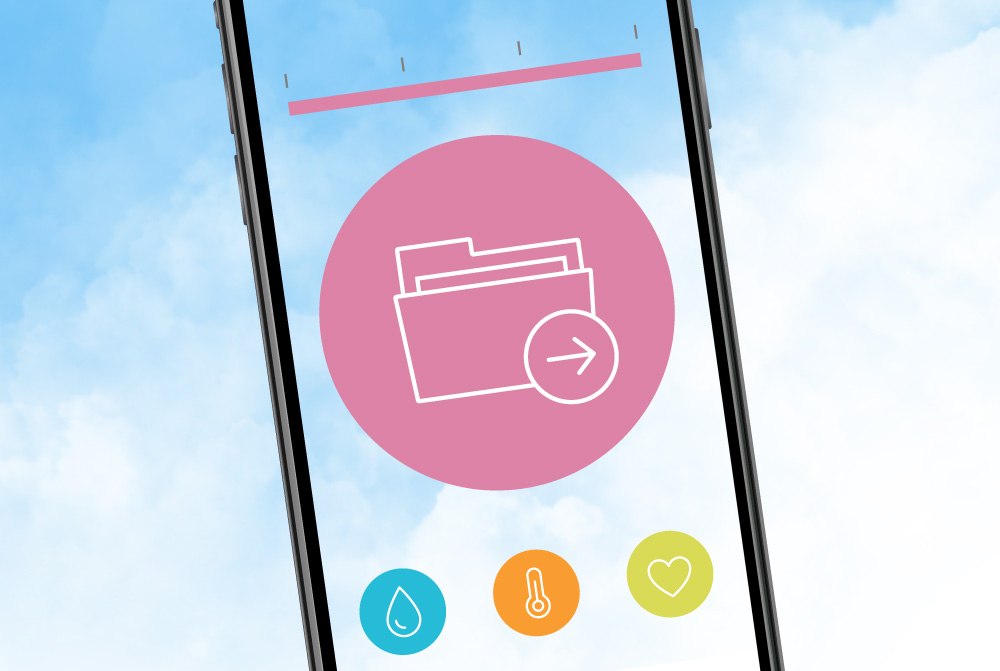ICO to review period and fertility tracking apps as poll shows more than half of women are concerned over data security
- Date 7 September 2023
- Type News

- Regulator reviewing how apps process users’ personal information
- Poll shows over half of users have concerns over security of the data they share – and transparency over how it is used – when choosing an app
- Call for users to share their experiences directly with the ICO via a survey
The Information Commissioner’s Office (ICO) is reviewing period and fertility apps as new figures show more than half of women have concerns over data security.
A poll commissioned by the regulator revealed women said transparency over how their data was used (59%) and how secure it was (57%) were bigger concerns than cost (55%) and ease of use (55%) when it came to choosing an app.
The poll showed a third of women have used apps to track periods or fertility.
The research also showed over half of people who use the apps believed they had noticed an increase in baby or fertility-related adverts since signing up. While some found the adverts positive, 17% described receiving these adverts as distressing.
The ICO is now urging users to come forward to share their experiences through a survey in a call for evidence. We have also contacted companies who provide period and fertility tracking apps, including some of the most popular apps available to UK users, to find out how they are processing users' personal information.
A focus of the ICO's work is to identify whether there is the potential for harm and negative impact on users as a result. These harms could include unnecessarily complicated and confusing privacy policies, leaving users in the dark as to what they have consented to, apps requesting or storing unnecessary volumes of data, or users receiving upsetting targeted advertising that they did not sign up to.
We will also be commissioning focus groups and user testing, and working with key stakeholders, where the National Data Guardian, Dr Nicola Byrne, and women’s health groups, including Wellbeing of Women, have offered their support.
Poll
The poll was conducted by Savanta. Savanta surveyed 1,152 UK women aged 18+ between 1-3 September 2023. Data was weighted to be representative by age, gender, region, and social grade. Savanta is a member of the British Polling Council and abides by its rules.
Respondents were asked the follow questions:
Q1. Have you ever used an app to track any of the following [select all that apply]?
a. To track your period
b. To prevent a pregnancy
c. To plan a pregnancy
d. None of these
Results of note: 34% of women (395) had used an app for at least one purpose. 69% of 18-24 year olds had used an app to track their periods and 65% of 25-34 year olds.
19% of 25-34 year olds and 20% of 35-44 year olds had used an app to plan a pregnancy.
Q2. When choosing an app to track periods or to plan or prevent a pregnancy how concerned would you be about each of the following? [5 point scale from very concerned to not at all concerned]
a. Ease of use
b. Cost
c. Volume of adverts within the app
d. Volume of personal data I needed to share
e. Type of personal data I needed to share
f. Security of the data I was sharing
g. Transparency over how my data is being used and shared
Results of note: Data transparency (59%) and security (57%) were bigger concerns than cost (55%) and ease of use (55%) when it came to choosing an app. Volume of adverts within the app were of least concern (21%).
Q3. If you have ever used an app to plan or prevent a pregnancy, did you notice an increase in online advertising about baby or fertility-related products and services?
a. Yes and this was positive for me
b. Yes and this was distressing to me
c. Yes and this was neither positive nor distressing
d. No
e. Not sure
Results of note: Over half of people (54%) who use the apps believed they had noticed an increase in baby or fertility-related adverts since signing up, with 17% describing this as distressing. About the same number of people (18%) said it was positive. 19% said it was neither positive nor distressing; 32% said they had not noticed an increase and 14% were unsure.
Notes for editors
- The Information Commissioner’s Office (ICO) is the UK’s independent regulator for data protection and information rights law, upholding information rights in the public interest, promoting openness by public bodies and data privacy for individuals.
- The ICO has specific responsibilities set out in the Data Protection Act 2018 (DPA2018), the United Kingdom General Data Protection Regulation (UK GDPR), the Freedom of Information Act 2000 (FOIA), Environmental Information Regulations 2004 (EIR), Privacy and Electronic Communications Regulations 2003 (PECR) and a further five acts and regulations.
- The ICO can take action to address and change the behaviour of organisations and individuals that collect, use, and keep personal information. This includes criminal prosecution, non-criminal enforcement and audit.
- To report a concern to the ICO telephone call our helpline on 0303 123 1113, or go to ico.org.uk/concerns.